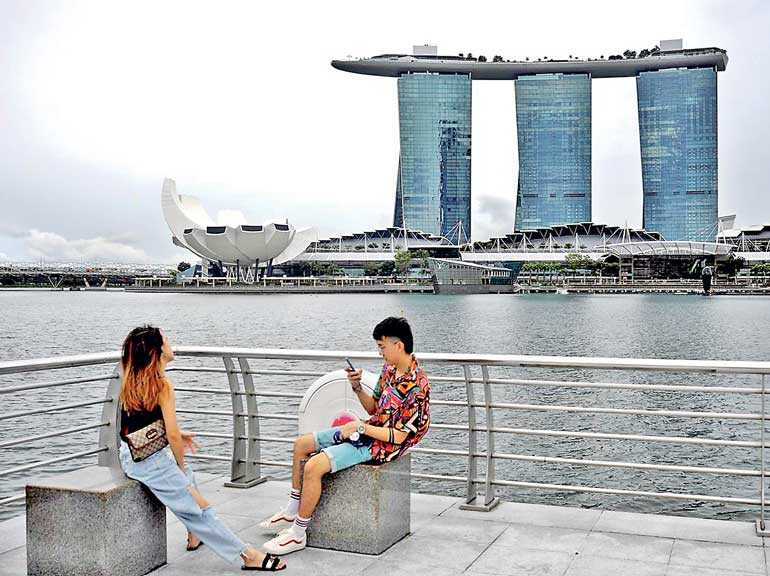Friday Feb 20, 2026
Friday Feb 20, 2026
Tuesday, 28 July 2020 00:12 - - {{hitsCtrl.values.hits}}

FILE PHOTO: A youth takes photos at Merlion Park, amid the coronavirus
disease (COVID-19) outbreak, in Singapore - Reuters
SINGAPORE (Reuters): Singapore’s tourism sector is facing an existential crisis, its tourism board chief said on Wednesday, laying out plans to boost local demand after a collapse in visitor arrivals due to COVID-19 travel restrictions.
Singapore had welcomed a record 19.1 million travellers in 2019 – more than three times its total population. But the island city-state closed its borders earlier this year and has advised its citizens to avoid going overseas – a position that is unlikely to change in the near term.
Tourism numbers for the remainder of the year would be similar to April and May when they fell 99.9%, said Singapore Tourism Board chief executive Keith Tan. The board unveiled a S$45 million ($32.5 million) marketing and promotion campaign to drive local demand for lifestyle and tourism businesses.
Singapore is hoping locals, who spent S$34 billion on overseas travel in 2018, will splash out on staycations at hotels and visit tourist attractions. Still, the STB does not expect residents, already worried about salaries and jobs, to be able to fill the S$27.1 billion hole left by international visitors.
“Given the severe impact that COVID-19 has had on international travel, it is inevitable that more job losses will happen in the coming months,” Tan added. The government has pumped in stimulus of nearly S$100 billion to cushion the impact of Singapore’s worst recession. “It is not sustainable for us to keep supporting a business model that may no longer be available or at least will not come back within the next one, two years,” said Chan Chun Sing, minister of trade and industry, urging tourism businesses to seek new markets and niche offerings.
While demand for mass market tourism is unlikely to pick up in the near term, Chan said, Singapore has agreed to resume essential business travel with China and Malaysia. It is in talks with South Korea, Australia, New Zealand and some European nations for similar agreements.